Looking for your next adventure? It starts here!
Join our women's adventure community for exclusive trips, partner benefits and inspirational articles delivered straight to your inbox.
For women who want to collect experiences, not things.
Book a TripOur Larger Trips
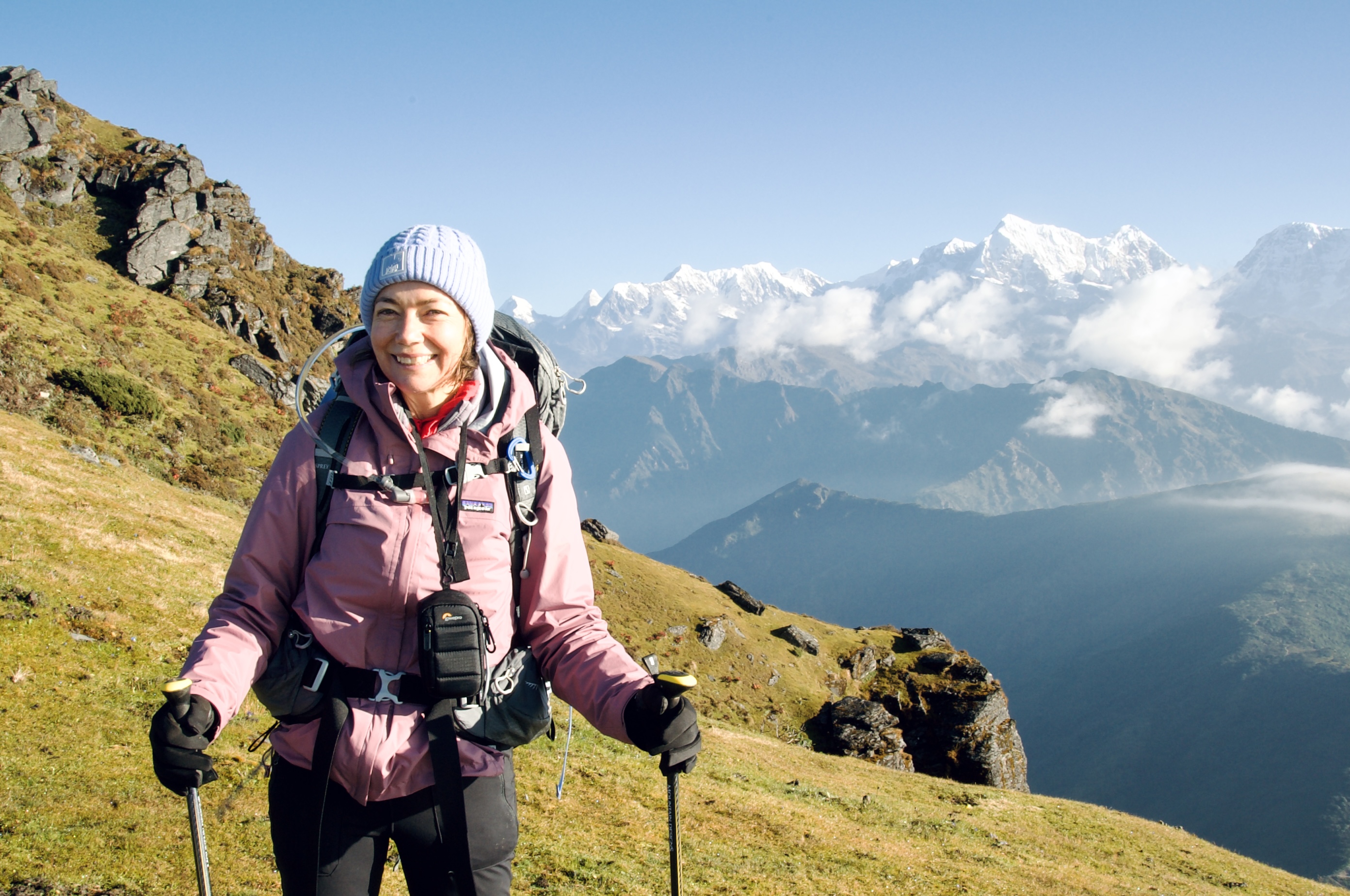
Imagine camping in serene forests, besidelakes, and on hilltops where you can watch the sunrise from your tent, tea in hand, with the summit of Everest looming in the distance. On a clear day atop Pikey Peak, you are treated to a breathtaking panorama of the entire Himalayan range, stretching across Nepal.
This trek is renowned for offering the “best views of Everest”, echoed by the legendary Sir Edmund Hillary. Its off-the-beaten-path nature ensures a peaceful journey, with nights spent in the comfort of our campsites, complete with delectable meals in the ktichen tent prepared by your guides and a full team of 24 porters!
The trek has beautiful views, cuddles with baby goats, and a visit to Monastery from Junbesi, one of the oldest in the region.
This trek is a unique, camping-style adventure that delves into the lush foothills beneath the majestic views of Mount Everest.
Our Pikey Peak Trek unveils a less-travelled path, offered by only two operators in all of Nepal. Our adventure is designed to provide an intimate experience with nature, where you'll rarely encounter other people (in fact we didn’t for three days last year!). This route was meticulously planned by Surrender, one of our local Nepalese guides. It takes you along yak trails and through the rolling foothills, culminating in scenic camping spots.
From the onset of our trek, we leave the village of Phaplu in our behind. As we commence our first ascent, we bid farewell to any villages and welcome the tranquillity of remote camping. The trails, while occasionally narrow, steep, and muddy, are manageable.
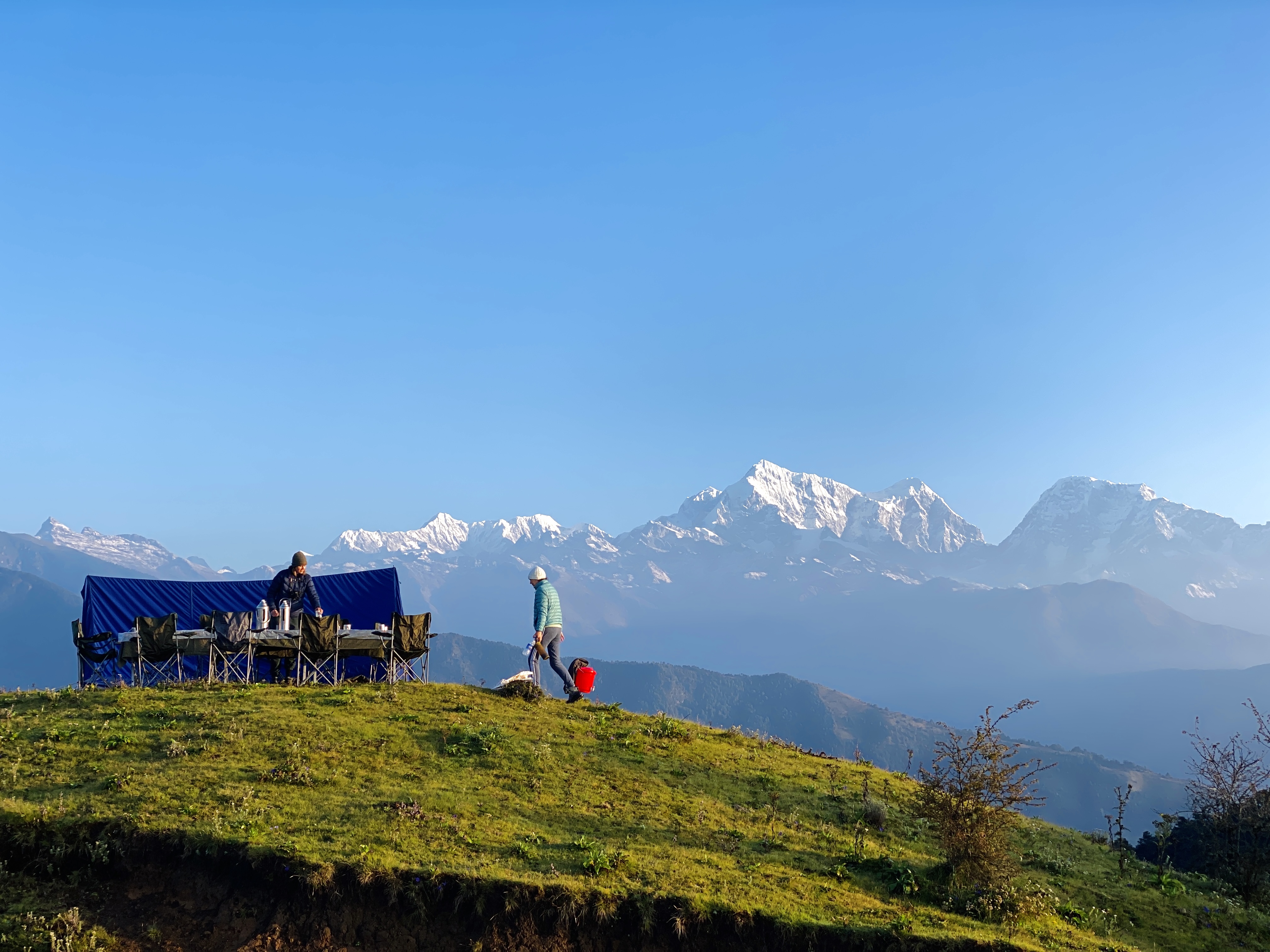
* All prices are per person and listed in Australian Dollars (AUD). All prices shown are GST inclusive where applicable.
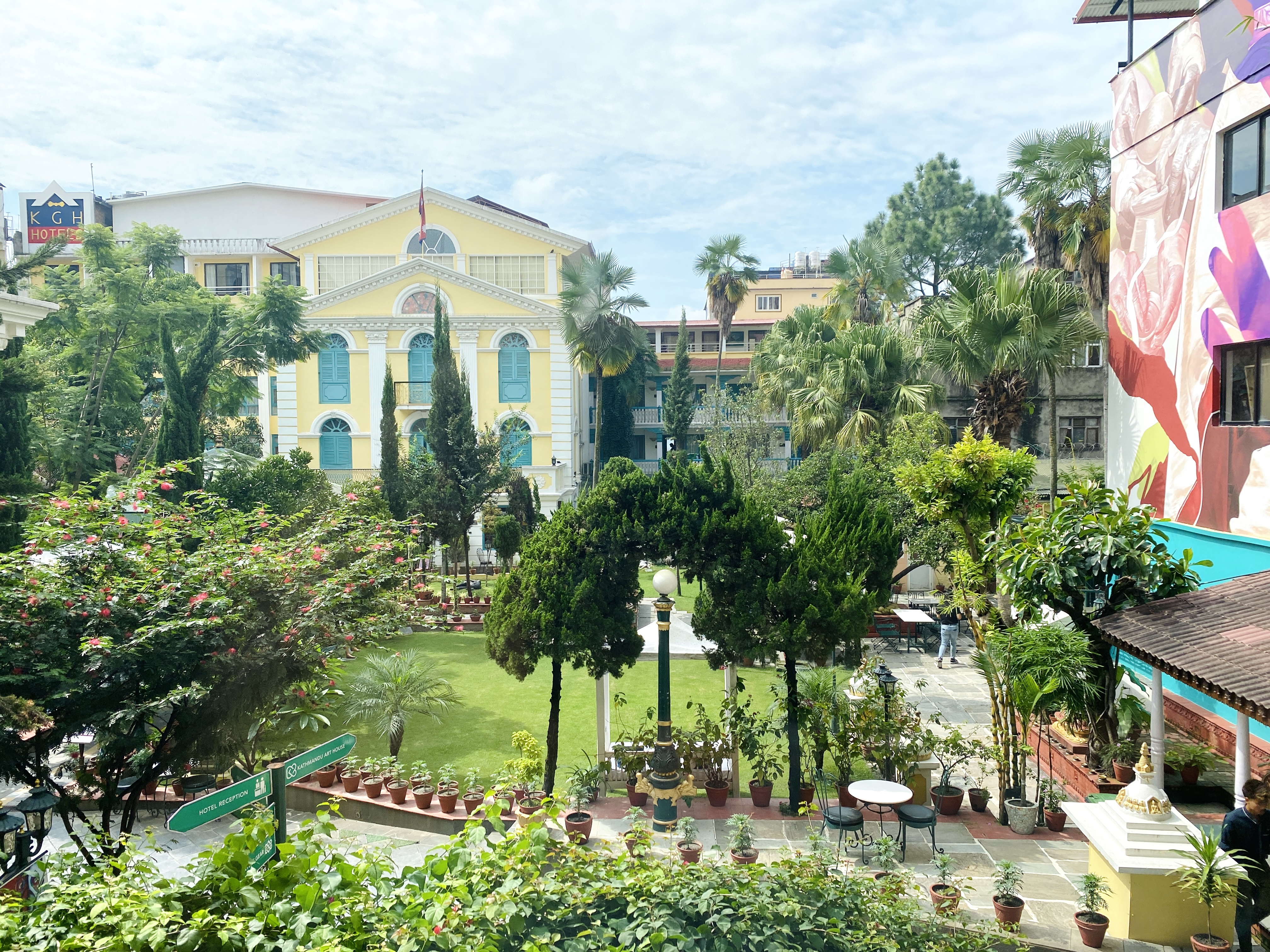
Upon your arrival at Tribhuvan International Airport, you'll be greeted by one of our friendly team members outside the terminal building. We will then escort you to The Kathmandu Guest House in Thamel in the comfort of a private vehicle. Don't worry if your flight arrives late at night; we'll be there to welcome you, no matter the hour. The drive to the hotel is typically around 35 minutes, depending on traffic.
Once at the hotel, you’ll find the check-in process a breeze. Settle into your private room and let the weariness of your flight dissolve into the coziness and comfort awaiting you.
For important details on visas and helpful tips for your flight arrival, please refer to the essential information we've provided.
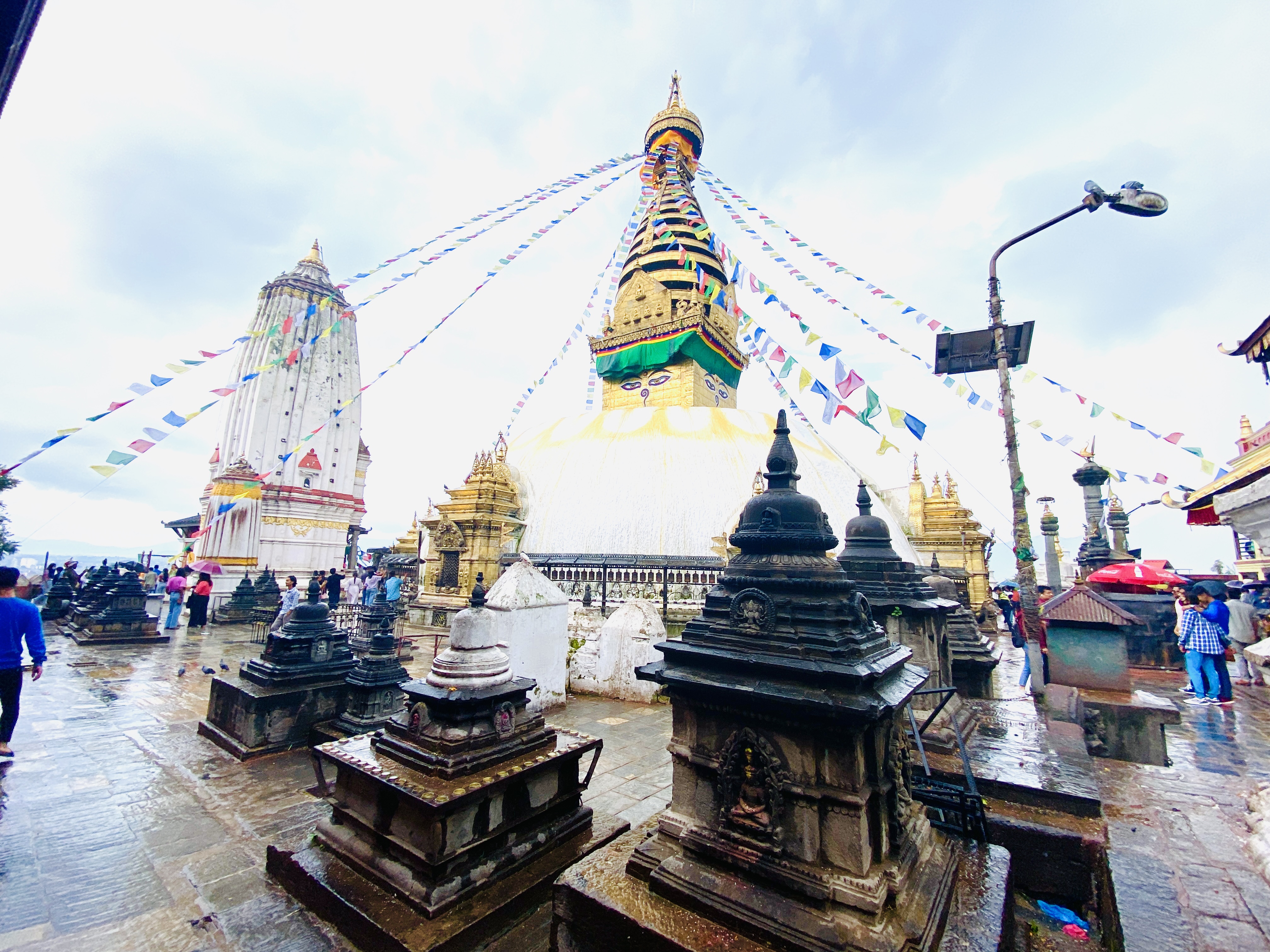
Kathmandu is a wonderful mix of the ancient alongside the modern. Crowded, busy streets, cars, motorbikes, and buses thread their way between ancient temples, crumbling shrines and modern offices, as picturesque palaces slowly sag into dereliction and Buddhist stupas gaze over the bustling scene with their all-seeing eyes. Although a crowded, noisy, and polluted city, it is also friendly, fascinating and vibrant.
Today is free time for you to explore and enjoy sight-seeing in your own time. Join up with other women on the trip, or enjoy experiencing these sites individually.
If you’re looking to get the most from your time here, we recommend the following:
Pashupatinath – The largest Hindu Temple of Nepal, dedicated to the supreme Hindu God, Shiva, situated on the banks of the Bagmati River. At Pashupatinath, you’ll see exceptionally carved statues and idols of Hindu deities, as well as a long row of Shiva-Lingas. This complex of small temples – and the golden hood at the top of the main Temple – are truly fascinating. Moreover, you’ll get the opportunity to witness a Hindu death ritual at Pashupati Aryaghat – a unique cultural experience that will linger long in your memory.
Boudhanath – A site that holds huge religious significance among the Tibetan Buddhists of Nepal. A major shrine on the ancient Indo-China trade route, traders and scholars would visit Boudhanath seeking blessings for a safe journey through the high Himalayan passes to Tibet. Even today, saffron-robed monks practice daily circumambulations of Boudhanath, as colourful prayer flags touch the skyline from the dome pinnacle to the base of the large monument. The centre of Tibetan culture in Nepal, Boudhanath is a truly special place.
Durbar Square – Located before the old royal palace of the former Kathmandu Kingdom, the exemplary wooden and stone craftsmanship of this site makes it a prominent attraction. Stone-paved streets and pagoda-style religious monuments displaying different Hindu deities reveal the cultural delights and exquisite craftsmanship of ancient and medieval Nepal at Kathmandu Durbar Square.
Swayambhunath – High atop a hill in the Kathmandu Valley, the ancient religious complex of Swayambhunath is home to a stupa and various temples honouring the ‘Self-Created’ nature of the valley, over which the painted eyes of the Buddha maintain an eternal watch. As one of the oldest religious sites in Nepal and the second-most sacred site in Tibetan Buddhism after Boudhanath, you’ll get to experience an authentic taste of one of the world’s greatest, most beautiful faiths here at Swayambhunath.
In the evening, we’ll meet as a group at Kathmandu Guest House at 4pm or our pre-trek briefing. The briefing will be approximately 1hr in in duration.
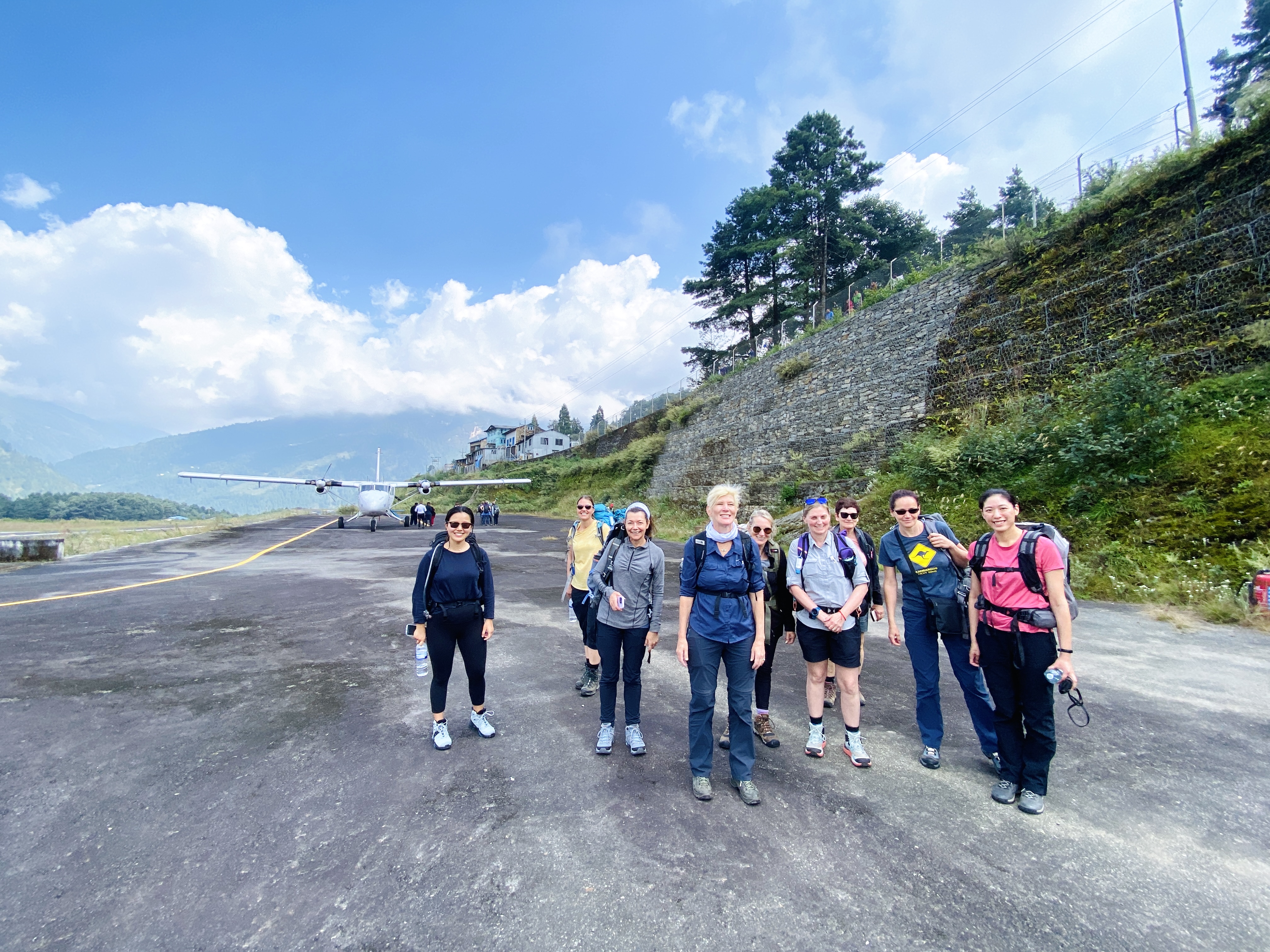
Today, we check out of our hotel in Thamel and are picked up in the morning for a drive to the domestic airport, approximately a 35-minute journey. Once at the airport, be aware that planes can depart at unusual times (despite the ticket time), so be prepared to either wait at the airport or leave earlier. Bring your snacks , water and book in your day pack. Your host, along with airport staff, will assist you. This is due to the varying weather conditions between Kathmandu and Phaplu. If there is a favourable weather window, we will promptly depart! The flight lasts about 45 minutes on a small 15-seater plane. It is VERY exciting!!!
You will be awestruck by the magnificent mountains visible from the air before you even start your trek. Upon landing, it’s just a 5-minute walk from the airport strip to our Tea House where lunch awaits, along with the trekking porters, sherpas, and guides (who do not accompany us on the plane). The team will great you at the airport on your arrival and help you carry the duffle bags of your gear to the Tea House. Phaplu is situated at an altitude of approximately 2413 meters.
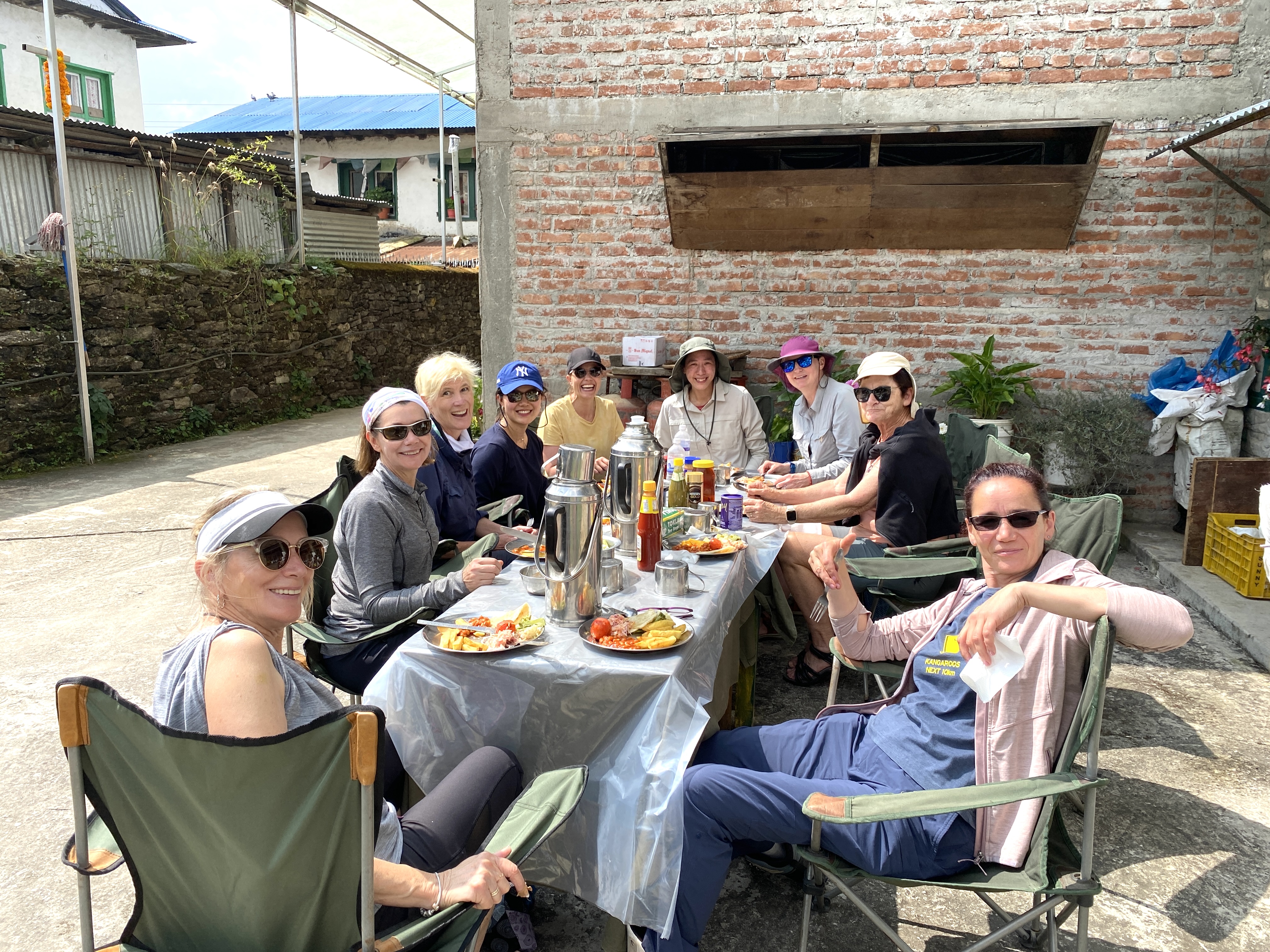
After lunch, we will settle into the Tea House and take a leisurely stroll around the village, visiting the monastery and gardens down the road. This offers a chance to explore this beautiful, remote village and its mountainous surroundings. It’s advisable to rest on this day as the flight's landing time can vary due to weather conditions.
In the afternoon, dinner will be served in the Tea House. You’ll notice the team setting up camp kitchen tents in the yard, giving you a glimpse of the incredible effort they put in to ensure the group's comfort.
Tips:
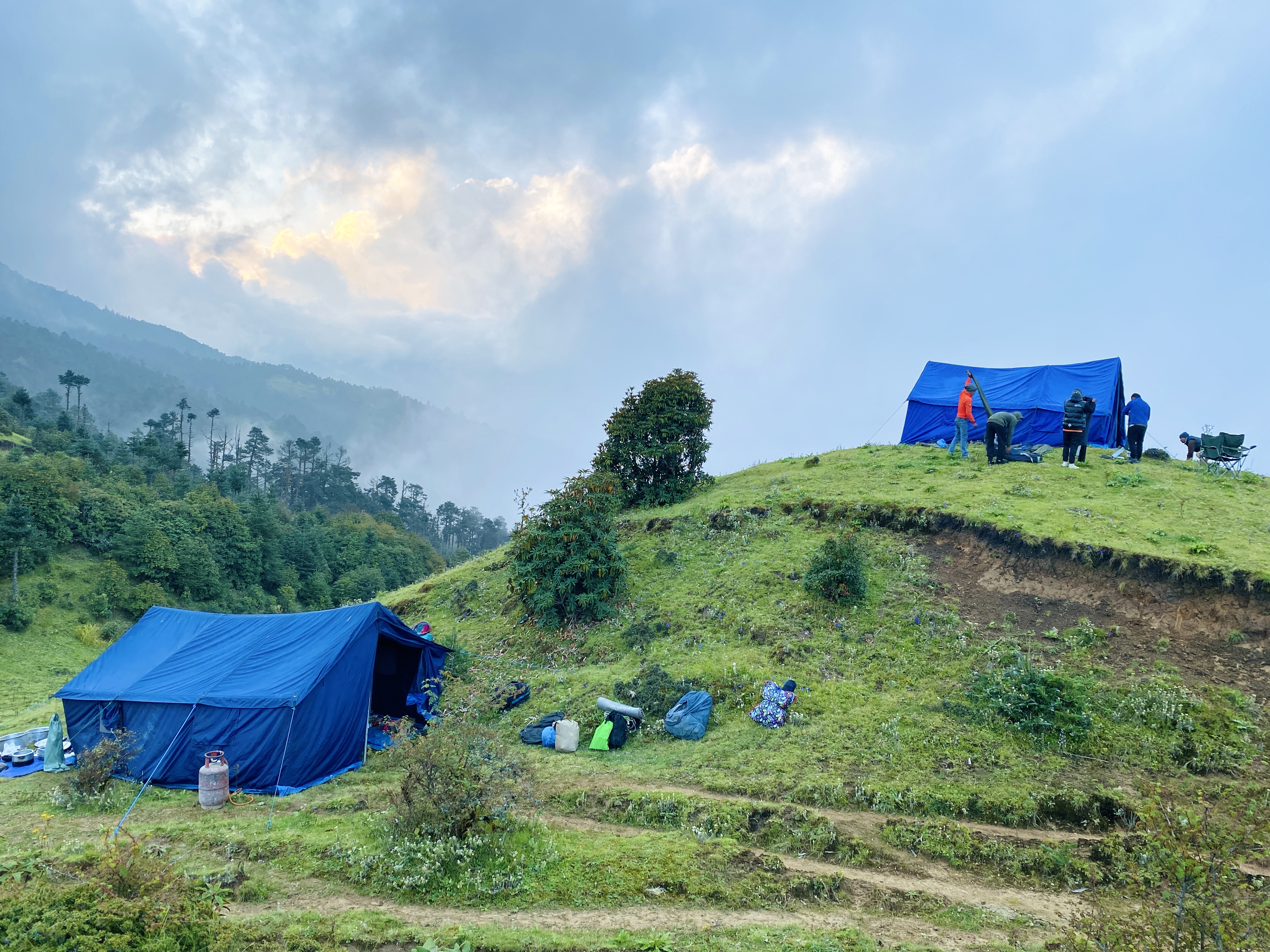
Today, you will awaken to the true meaning of “wake up tea.” Around 6:30 am, your guides will bring hot tea to your rooms as a delightful wake-up call, preparing you for the day ahead. After breakfast at the Tea House, we embark on our trek. The journey begins with a descent into the valley. It’s a steep hike down through pine forests and paddy fields. After traveling approximately two kilometers (about an hour), we reach the Solu Khola river. Here, we follow a newly established road for a short time before veering left onto a small trail leading up to the village of Boldok on single narrow trail. Beyond Boldok, the last village we’ll see for a few days, we ascend steeply and stop for a simple yet hearty lunch. Be sure to pat the goats along the way!
The trail from here winds steeply through pine forests on various yak and animal trails. These paths are uneven and occasionally off-track, with mud in places. Between the trees, you’ll catch stunning glimpses of the lush Phaplu Valley, with the majestic Mount Numbur and Gaurishankar - named after the Hindu goddess Gauri and her consort Shankar - to the north.
After another 3-4 hours, our campsite atop the ridge awaits, offering your first views of the magnificent Everest.
Each afternoon around 4 pm, depending on our setup time and weather, tea and coffee is served. The team will set up your tents (a welcome luxury!). At camp, there's always bustling activity as the chefs and their assistants prepare your dining tent and kitchen. In the evening, join the group in the dining tent for some card games, enjoying soup, dinner, and often a delectable surprise dessert!
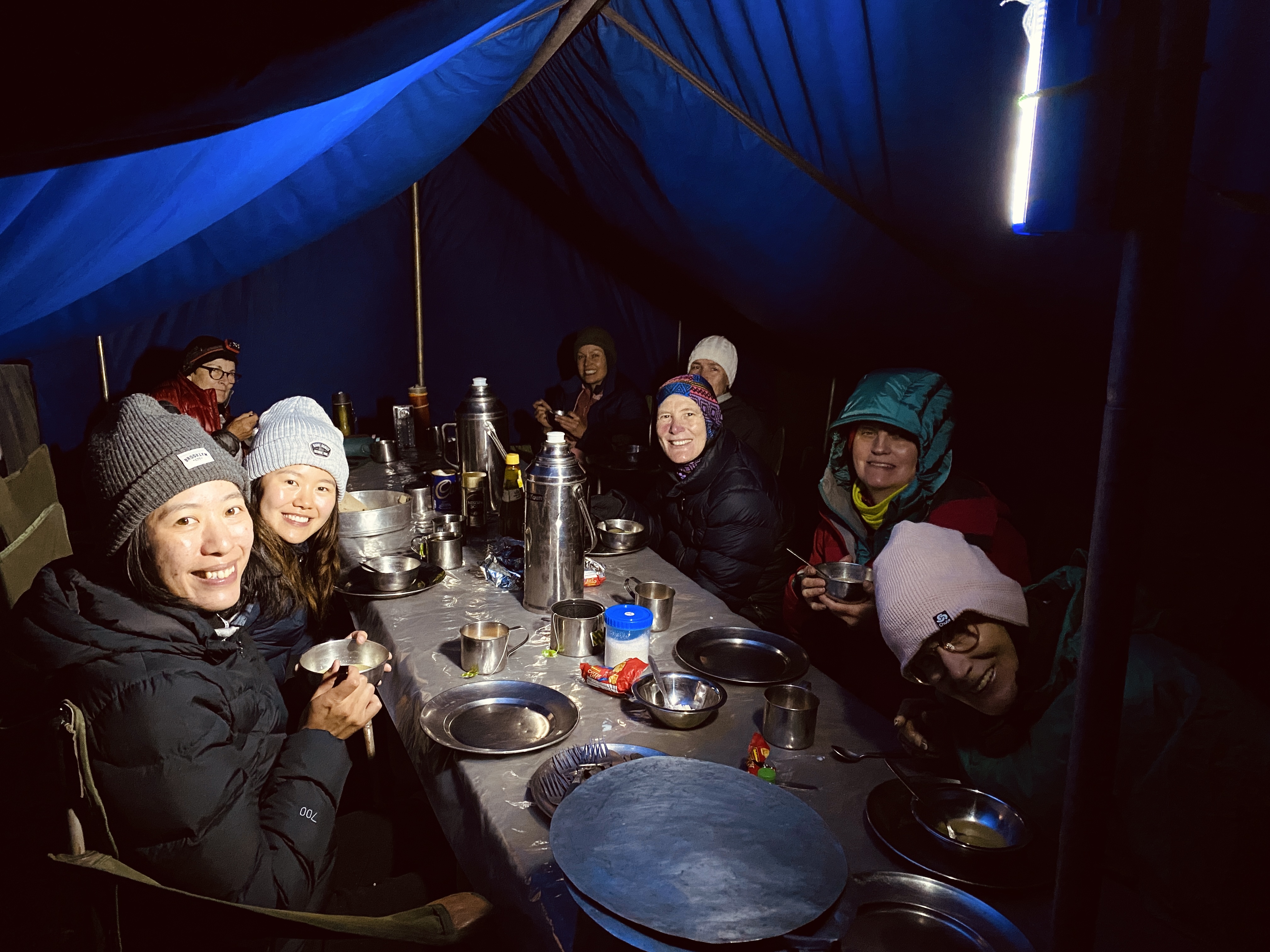
Tips:
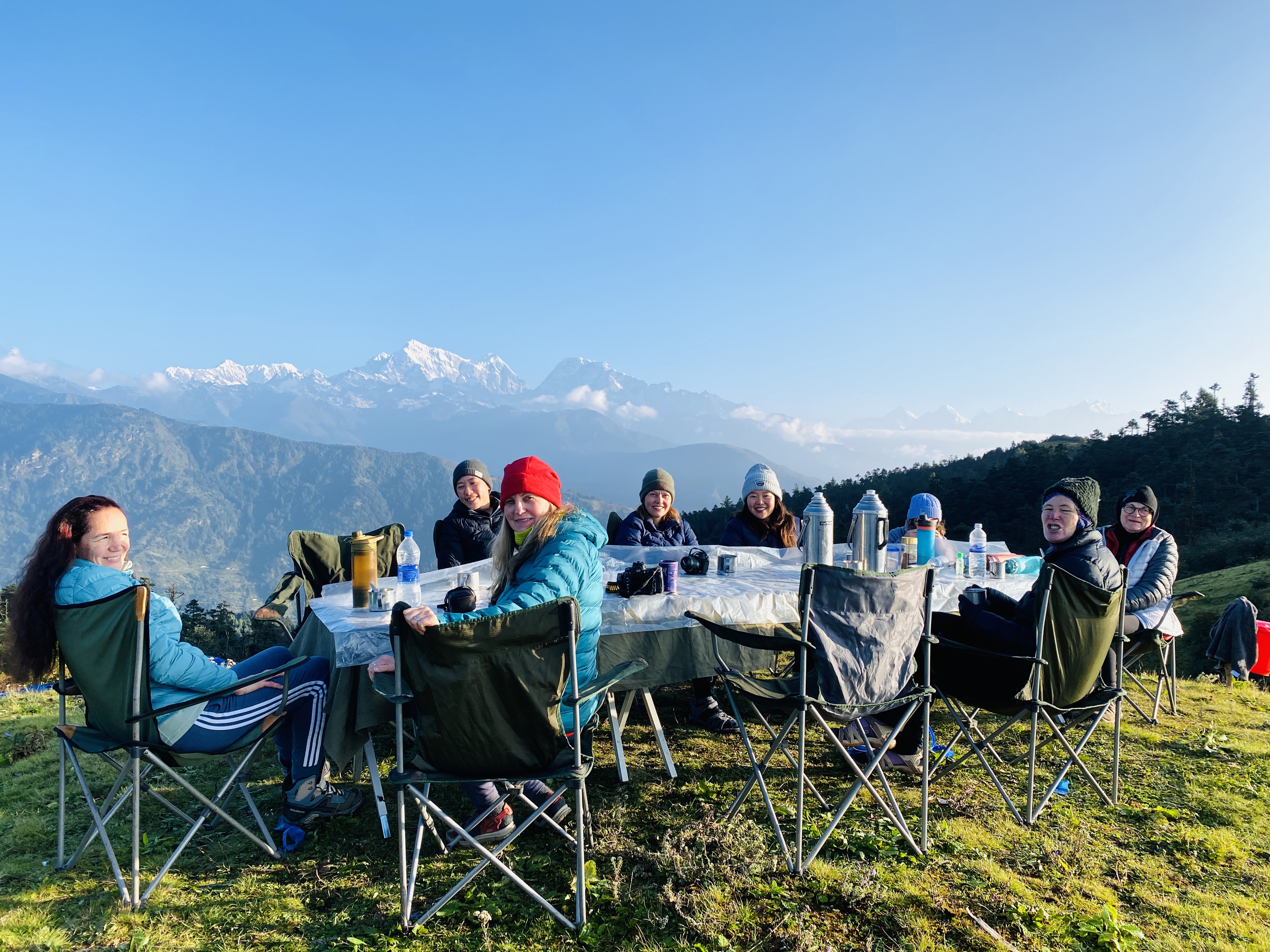
The following morning, we'll rise early to witness the first morning rays illuminating the Himalayas. Savor tea and coffee served right in your tent while you take in the breathtaking surroundings. The team will also bring over warm “washing water” to wash your hands and face. After a hearty breakfast, we start the day with a gradual ascent along the ridge. Our path winds through pine forests, interspersed with rhododendron bushes and open meadows. Although it's a relatively easier and shorter day, we are still ascending, so you might feel the effects of altitude.
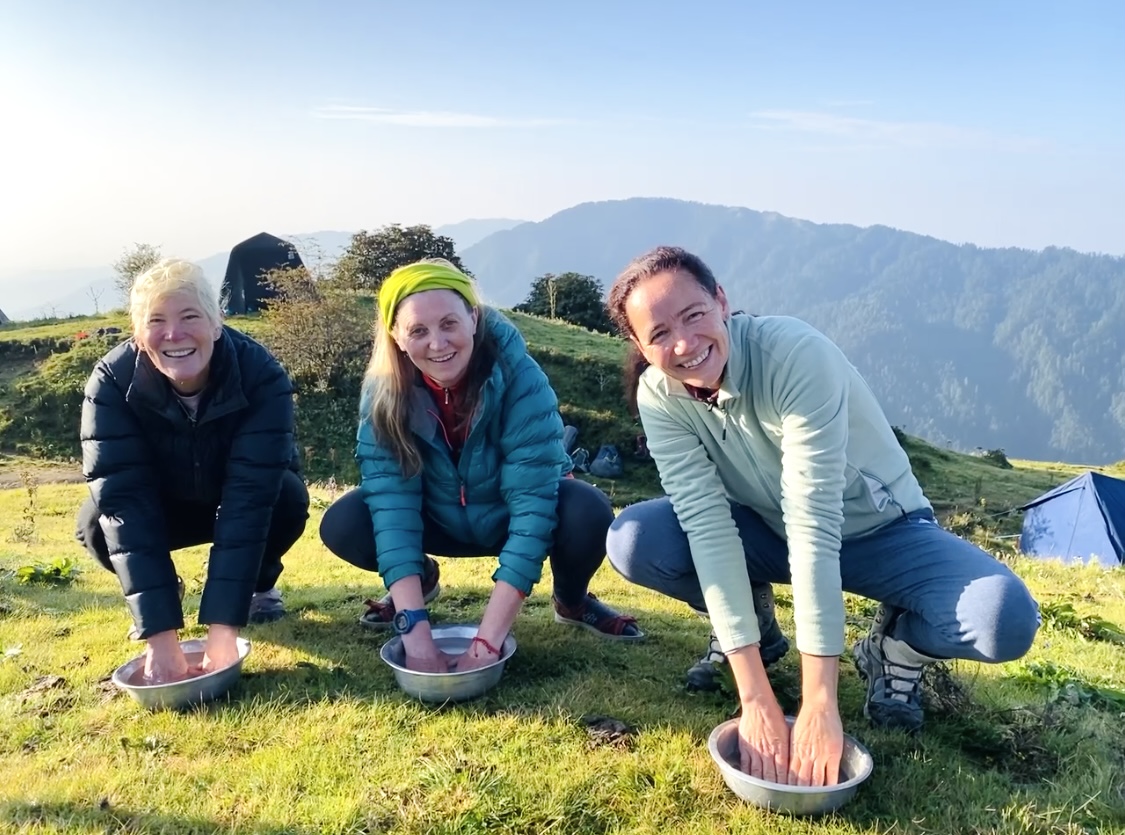
We'll reach our campsite early in the afternoon, at a location traditionally used by local herders for evening shelter. The area is dotted with a few dried-out lakes, which only hold water during the monsoon season. Once at the camp, we’ll gather for lunch, though light snacks will be available along the way. Please bring your own bars and nibbles for additional sustenance. The afternoon is yours to explore, read, or even help set up the campfire – the sooner we have it ready, the more enjoyable our evening will be!
Tips:
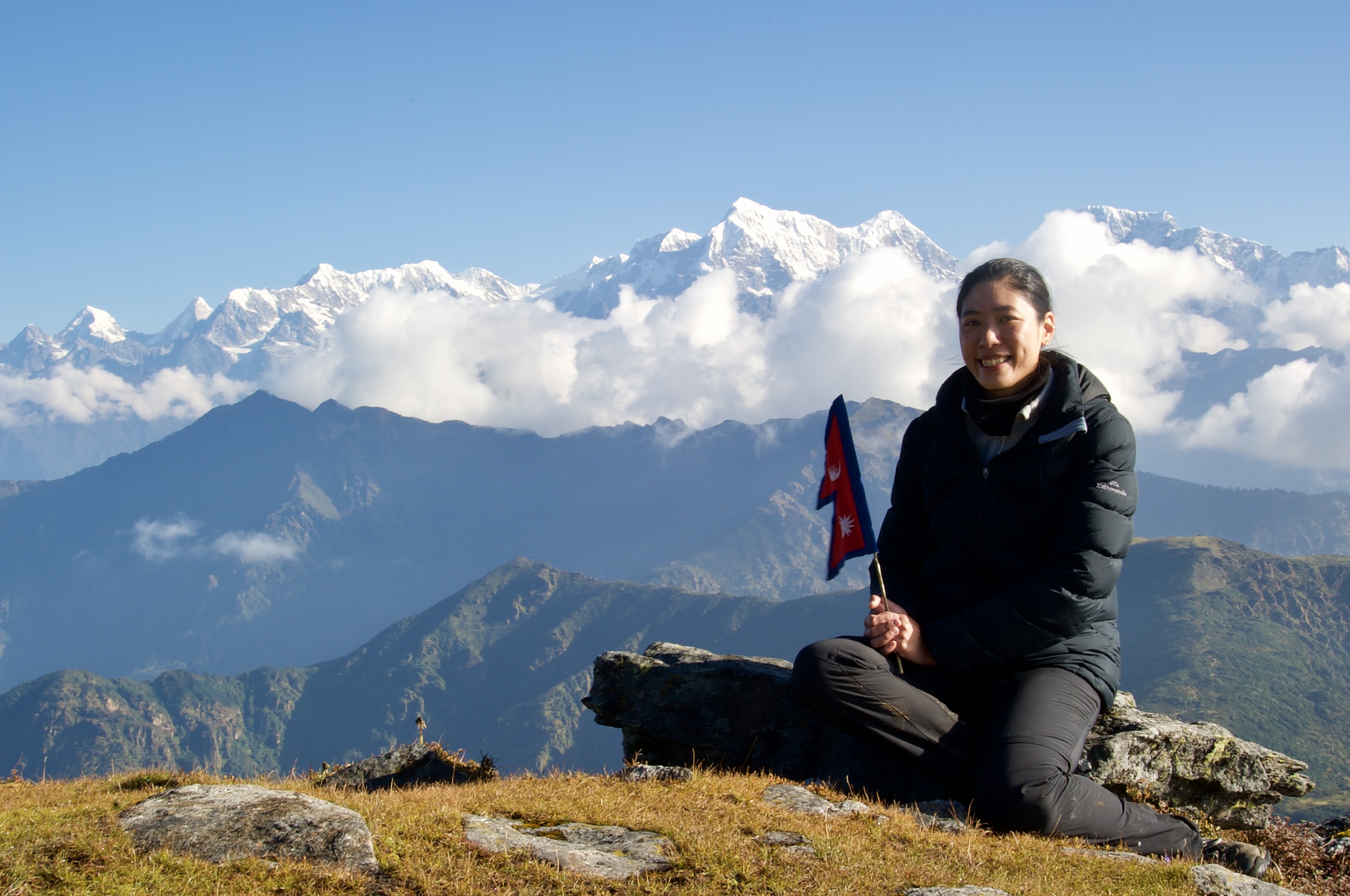
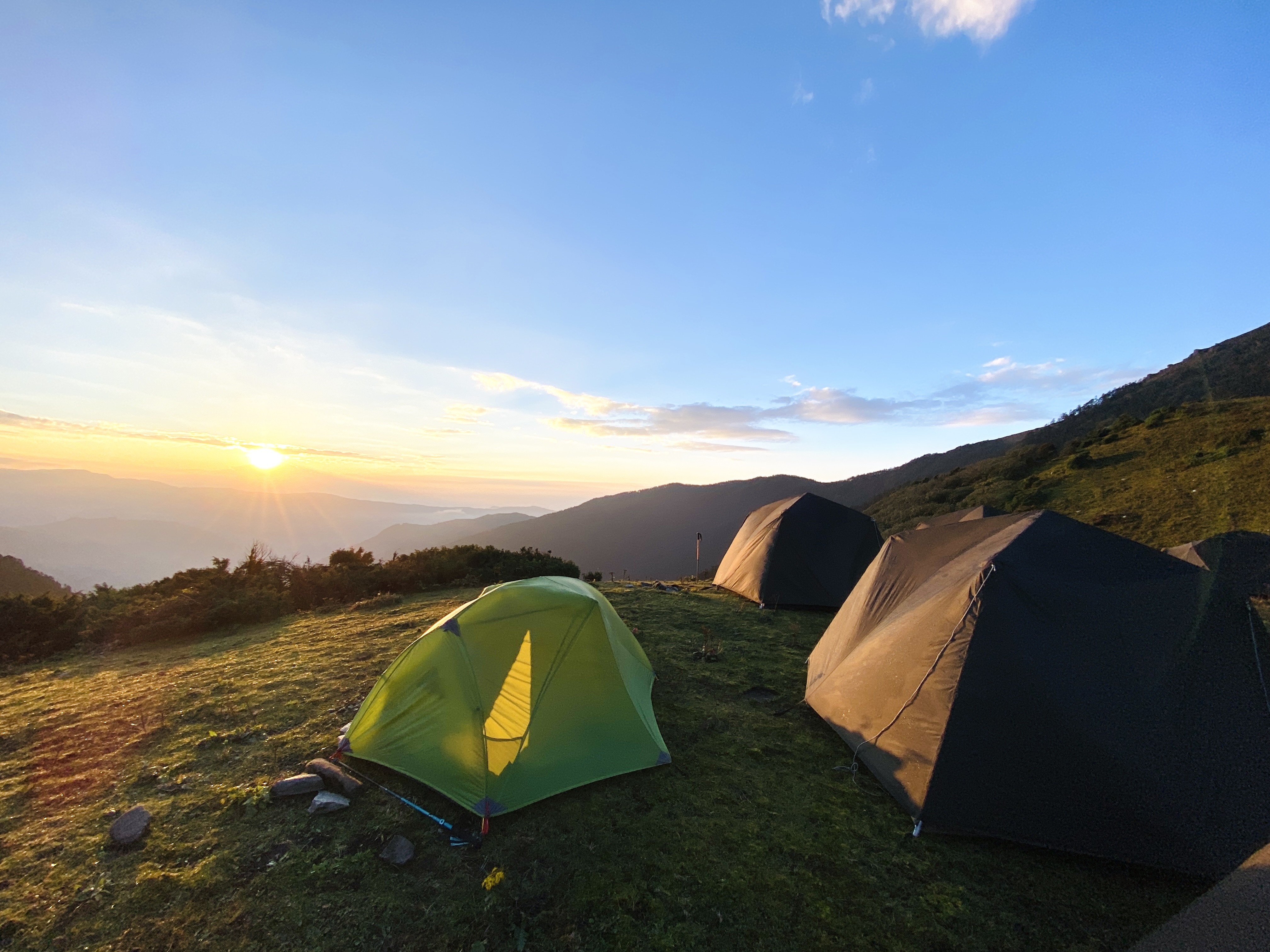
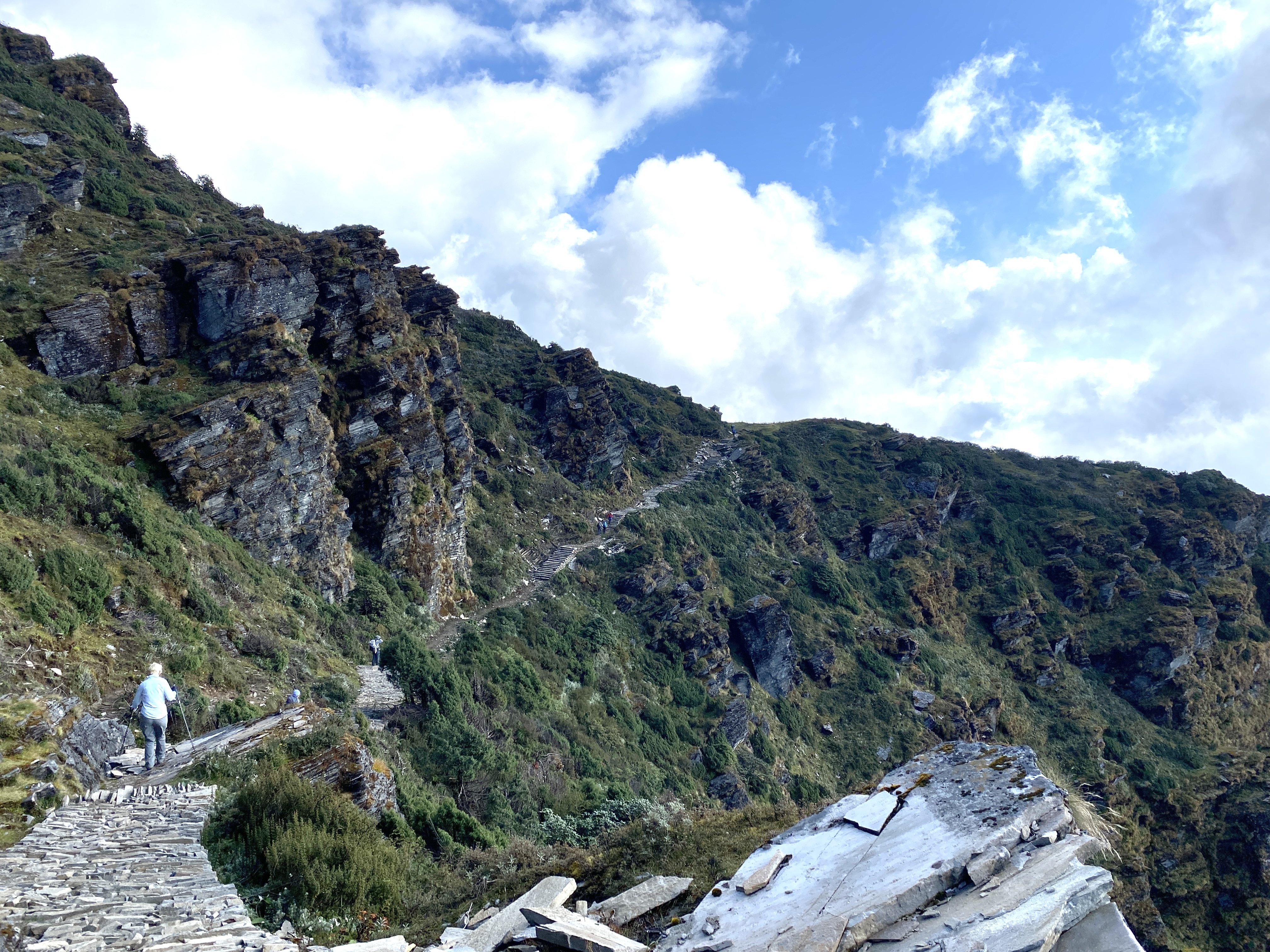
Today, we begin our descent from the foothills, embarking on a picturesque forest trail towards Junbesi Village. The day starts with a slight ascent up the mountainside before descending into the forest. This approximately 5.5-hour journey involves a steep descent on some loose rocky ground, but not before we ascend to about 3700 meters and then head down again. After we exit the forest, the trail widens, merging into a partially paved road and a broader path. Interestingly, this very trail is the one Sir Edmund Hillary trekked on during his famous Expedition to Everest!
By late afternoon, we'll reach a tea house location for lunch (late lunch so have your snacks handy on this day) and set up our tents on the grassy area. You’ll be delighted to know that a hot shower is available (for a small tea house fee, usually 500 Rupees). Our local team will prepare amazing meals, offering a perfect opportunity to relax and enjoy the forest surroundings. In the evening, consider exploring the monastery in town for a serene end to the day.
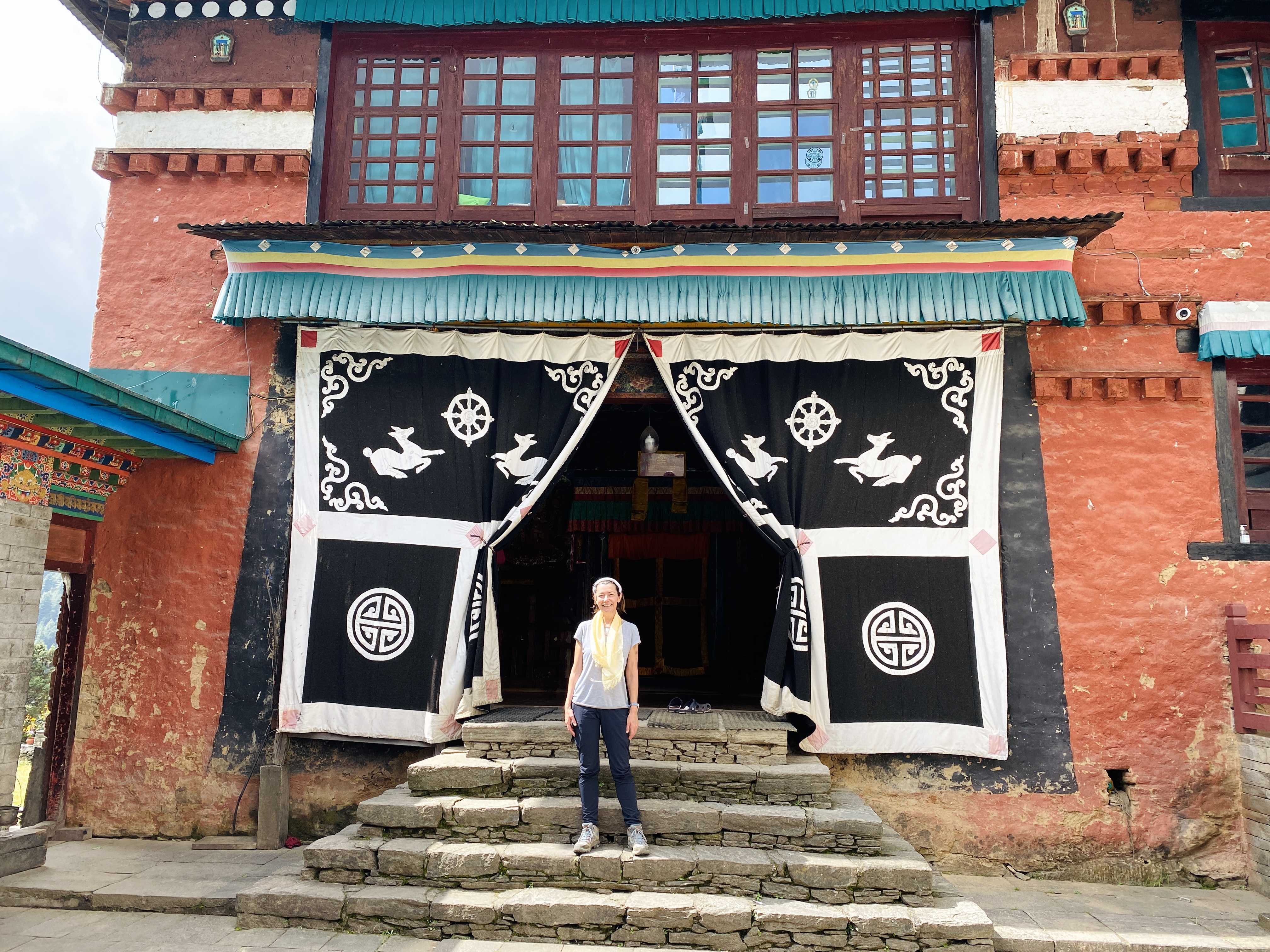
Today is dedicated to exploring Thupten Choling Monastery. After a leisurely morning with breakfast, we'll prepare for a shorter day of hiking, allowing us time to soak in our surroundings and culture.
Our path to the monastery starts near the stupa at the northern edge of the village, just where we camp. The trail ascends alongside Junbesi's stream, crosses it via a suspension bridge near Mopung's power plant, and then continues to a magnificent golden-topped stupa adorned with exquisite golden figures set against a blue backdrop. The journey to the monastery is a beautiful trek through an emerald evergreen forest and along a stream before trekking on the road. The path is somewhat steep, usually taking a bit more than an hour to reach the monastery. However, the trail’s beauty invites a slower, more relaxed pace.
Upon arrival, the monastery greets visitors with its serene ambiance, reflecting the rich culture and traditions of the ethnic Sherpa community. Please remember to bring small denominations in Rupees for donations at the Monastery.
We'll spend just over an hour there before descending for an hour back to our tents and tea house location for lunch and an afternoon of relaxation.
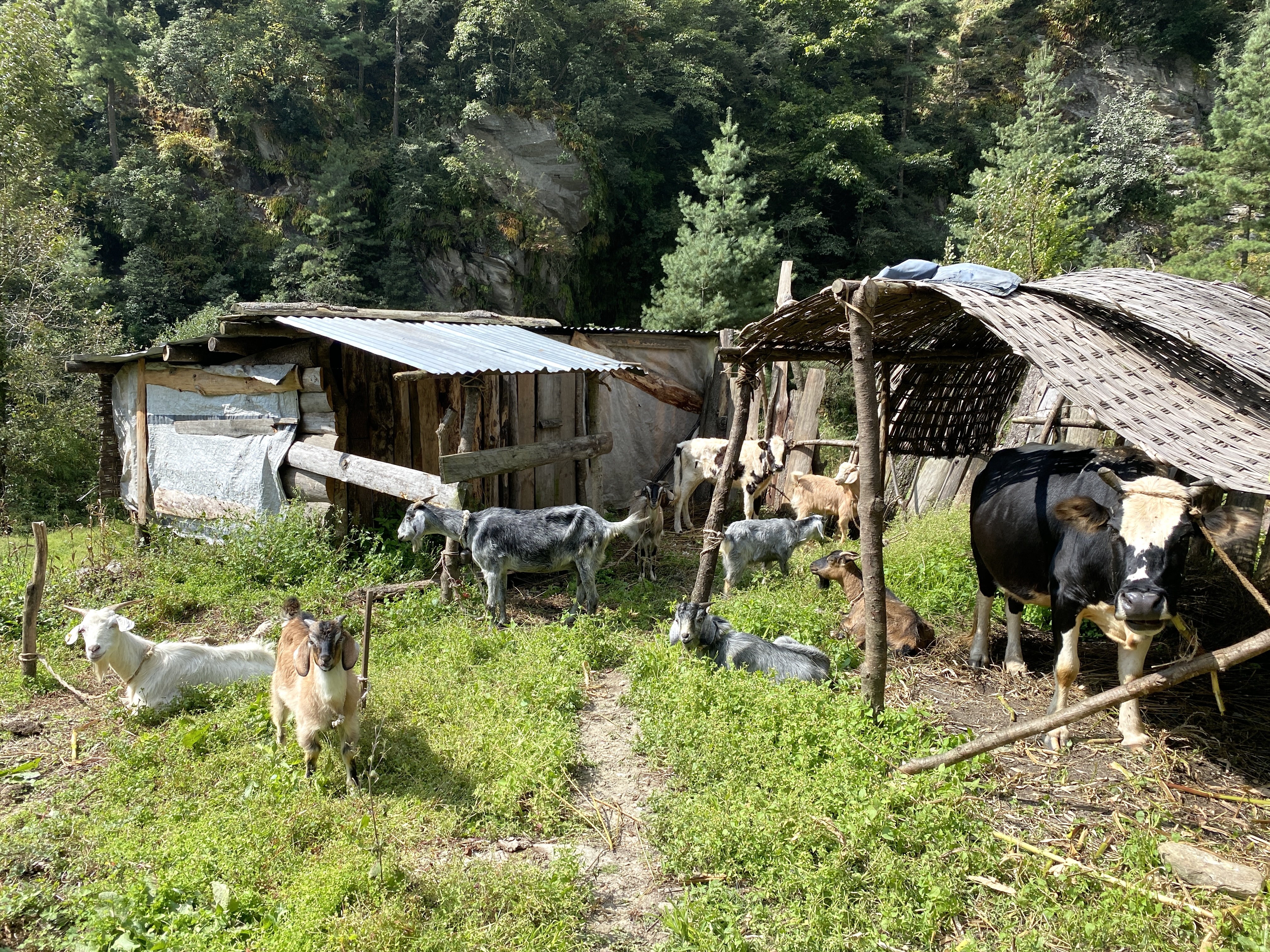
We depart Junbesi around 8 am after breakfast, following two days of a more relaxed pace, to trek back to Phaphlu. It’s a relatively easy village trail that meanders along the river, consisting mostly of descent with a final ascent towards Phaplu (what a splendid way to finish!). Along the way, keep an eye out for baby goats in the small villages we pass through.
The journey to Phaphlu takes about 4 hours of trekking, stopping along the way for monring tea (bring your snacks). Our porters will advance ahead of the group to prepare lunch, ready for our arrival just after midday.
Tonight marks the conclusion of our trekking adventure with the local porters and guides (they will return to Kathmandu by bus with the gear, rather than flying), making this evening a special occasion for celebration. It's a great opportunity to buy them a beer and remember to provide tips to the team as per the guidelines in the Packing List PDF on the booking page.
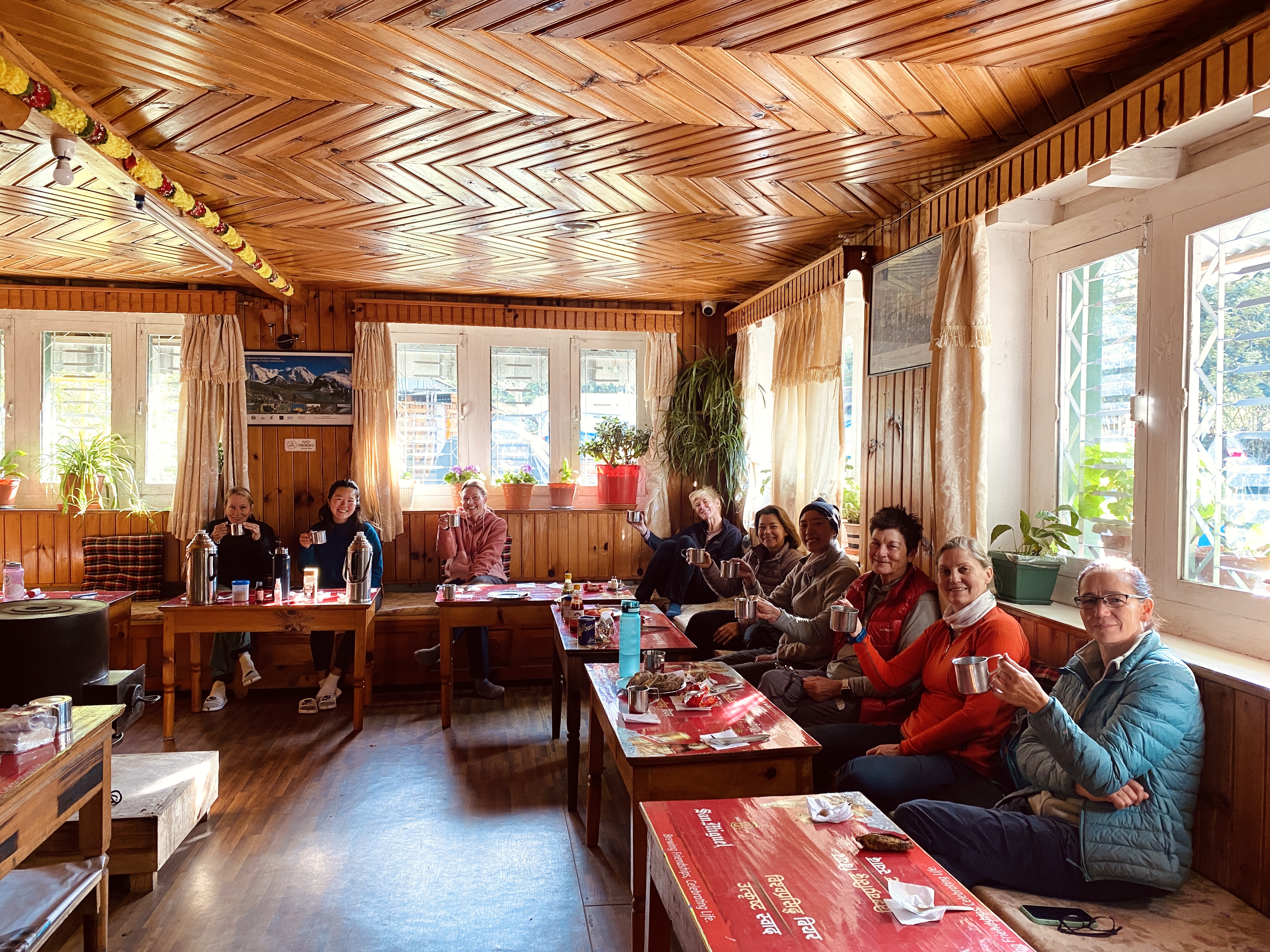
Tonight, enjoy the comforts of the tea house, including a bed, hot shower, and a well-deserved good night's sleep. You've earned it!
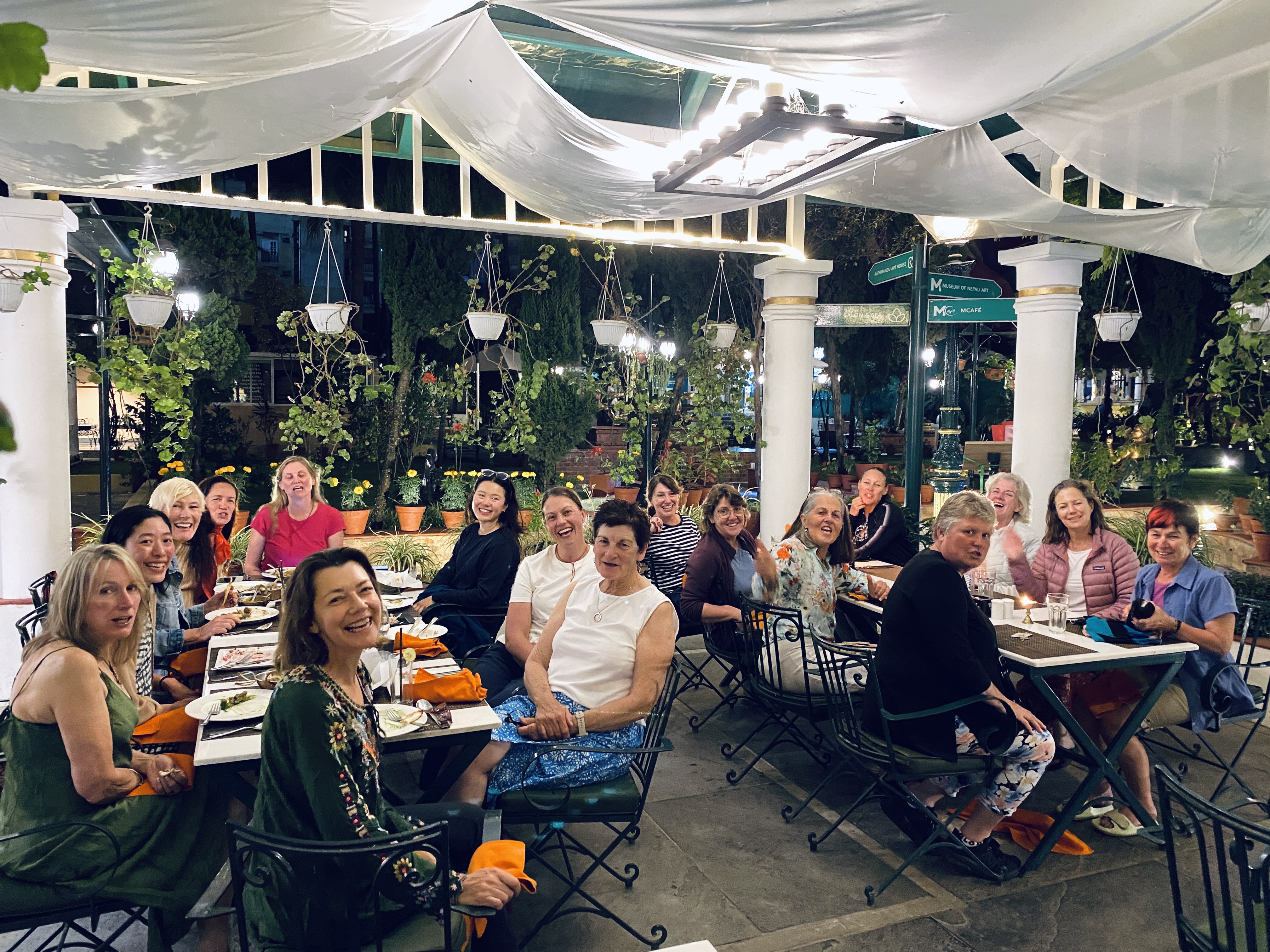
After breakfast, we aim to catch the morning flight back to Kathmandu. However, a word of caution: flexibility is key when waiting for flights. The weather in Phaplu can often be unpredictable, and clear conditions are necessary for safe take-offs and landings. It's not uncommon to experience delays at the Tea House, potentially waiting for 1-6 hours. In some cases, if a storm rolls in, alternate transportation via a roughly 11-hour car/bus ride back to Kathmandu may be required. This unpredictability is part of the adventure in Nepal and contributes to the overall challenging grading of this trek. Your guides will accompany you and your gear to the airport, assisting with tickets and guiding you to the gate.
Upon your return to Kathmandu, a member of our team will greet you at the baggage terminal and transport you back to the Kathmandu Guest House, typically arriving in the afternoon (depending on flight times).
Due to unpredictable weather, we advise booking your onward journey from Kathmandu at least 24 hours after the trek's conclusion. To allow for changes in the itinerary and weather-related alterations, we strongly recommend scheduling your departure flight 2 days post-trip.
Included:
Today might be your last day in Nepal, unless you've personally decided to extend your adventure! Breakfast is included at the hotel, and we've arranged for airport drop-offs today only. To ensure a smooth departure, please make sure you have provided us your flight details so we can inform the hotel reception and your driver. Remember, it's essential to allow 3 hours from the hotel to the airport, factoring in traffic and time for customs – the roads can be unpredictable, and the airport may be bustling. Please don’t forget to tip your driver too!
Tip: For a more comfortable wait at the airport: there’s a lounge you can access for about $35 AUD. It's a cozy upgrade from the general waiting area and well worth considering for some extra comfort.
Whether you’re departing Nepal today or continuing your travels, you’ll surely leave with a sense of accomplishment, camaraderie, and a treasure trove of memories from your journey to the roof of the world alongside like-minded, adventurous women.
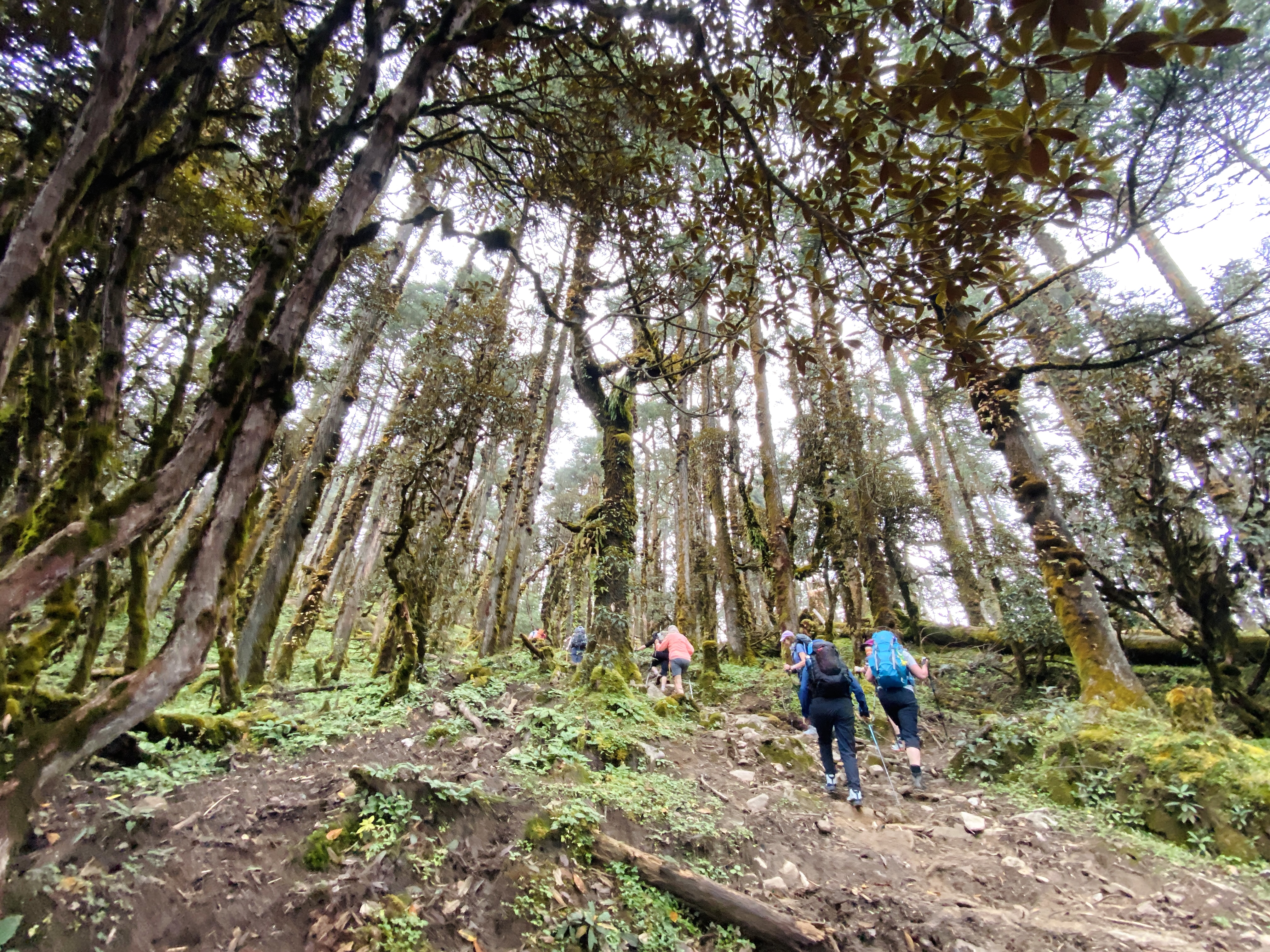
The Pikey Peak Trek is classified as challenging, and for good reason. The terrain, though generally moderate, features segments that are steep, muddy, and scattered with loose or slippery rocks. At high altitudes, these conditions can pose significant challenges. Be prepared for varied weather: you might find yourself hiking through rain or mist and then camping out at night. This trek demands women who are not only in excellent physical shape but are also comfortable with outdoor conveniences.
This trek is not suitable for those who are unaccustomed to regular camping or hiking. It wouldn't be fair to you or the rest of the group. The ascent to Pikey Peak starts around 4 am, involving hiking in the dark for a couple of hours. You need to be agile, adaptable, and ready to embrace the Nepalese philosophy of "plus or minus" — some days, a hike might take four hours, other days it could extend to six.
Difficulty is subjective, and adventure is a state of mind. What might be moderate for one person could be quite challenging for another. There's always the possibility of facing unexpected difficulties, like gastrointestinal issues, which can make the trek harder or having to wait in an airport for the weather to clear for the plane ride to Kathmandu. It’s the little things added up.
The pace at high altitudes is deliberately slow to accommodate acclimatization, but you should still be able to keep up with the overall group pace. Our porters will carry all the camping equipment, but you will be responsible for your daypack. Refer to our packing list for details on what you'll need to carry, typically weighing between 7-10kg.
If you're uncertain about your ability to meet the trek's demands, we advise you to contact us for further discussion or consult with your doctor for a health assessment. This journey is for those ready to embrace the rugged, raw beauty of nature, not for those seeking a pampered experience. It's an adventure for the determined and the resilient.
The majority of women embark on our adventures individually. Venturing to Nepal becomes even more empowering when shared with other like-minded women. In fact, on our recent Nepal treks, 8 out of 10 women took the plunge on their own. And guess what? Some of them even recognised familiar faces from previous adventures. How lovely! A week before you set off, we'll connect you into a WhatsApp group, making it easy for you all to touch base. Once you're at the hotel in Kathmandu, it's all about connecting. Whether it's sharing a meal, shopping, or exploring local wonders, you'll have your tribe right there with you.
Regular exercise (4-5 times per week) and good fitness are required. Please bring your trekking poles.
The Pikey Peak Trek is physically demanding but rewarding. It includes diverse challenges like varied weather, outdoor camping, and cultural differences. Good fitness and flexibility with your mindset are key for a successful experience. As we say in Nepal, sometimes the trail and time on trail is "plus or minus".
Eating is a significant part of the camping trek. Our chef is AMAZING! There's no other way to put it.
This trip includes a personal chef and assistants. He's not only cooking for the group but also for 24 porters, guides, and staff.
Expect wonderful food available in the mountains, with each day offering something a little different. There are no food orders on this trip; you'll enjoy what you're given. The meals are healthy and lovely, featuring veggies, rice dishes, potatoes, and sometimes eggs for breakfast or porridge (it's always a lovely surprise!).
Lunch is usually served on the trail, so please be patient as the team needs time to cook over a fire they build.
Often, the chef will hand-make chapati bread or whip up a pizza!
We don’t want to give too much away here, but trust us when we say the food is a HUGE highlight.
Please note, dietary requirements are tricky on this trip. Most meals are vegetarian (almost everything), and it's possible to be vegan, however, we cannot guarantee for celiac diets or nut free. This trip involves the team washing the cooking gear and plates from streams. Hygiene is taken seriously, but without a commercial dishwasher (no one would carry that up there!), we can’t completely eliminate any cross-contamination.
Please also be aware that our chef does not typically make separate meals or cut out garlic or onion. You are in Nepal. It’s a 'get what you are given' type of approach to this trip.
If you have any concerns, please contact us.
For Pikey Peak, it's not essential to have a GRAYL or filtration bottle. However, it is crucial to have a NALGENE or similar water bottle with a more robust shell (please avoid bringing plastic water bottles). The reason for this is that the team will boil water for the group each day, which serves as our method of purifying the water. Often, the water is still very warm or hot, so pouring it into plastic bottles is impractical (plus, the bottle's top is too narrow for pouring). We recommend that you bring a water bladder with a 1.5-2L capacity along with your water bottle. Often (and we encourage this), you can also add a water purification tablet to your water (just to double up on the safety and hygiene of the water).
Tip: We strongly advise bringing electrolytes with you to stay hydrated throughout the days of trekking. This will significantly help if you experience gastro issues and can aid in combating altitude sickness by ensuring proper hydration. These type of sachets work well and you should aim to take 1-2 each day.
Tip: You can take water on the plane with you.
Altitude sickness can affect anyone, regardless of age, trekking experience or level of fitness. It’s one of the top concerns people share about trekking Nepal and it’s a valid one. Unless you live at a very high altitude, our bodies are not acclimatised to the lack of oxygen in the high mountain air. Ascending too fast can cause problems. If symptoms of altitude sickness in Nepal (or anywhere else) are not addressed quickly, they can be extremely dangerous.
All our itineraries allow enough time for you to safely acclimatise. However, there are also things that you can do to support your own acclimatisation. If you know what symptoms to look out for, you can act quickly with the help of your trekking guide.
Altitude sickness, also called Acute Mountain Sickness (AMS), makes it difficult for oxygen to enter your body (vascular system) due to the low air pressure. The higher the altitude, the harder it is to get the amount of oxygen you need.
Altitude sickness can occur when you ascend to a high altitude too quickly. It’s more likely to affect people above 2,500m/8,200ft. Most of our treks climb to at least 4,000m/13,000ft, so there’s an element of risk.
We recommend that you take Diamox the day you arrive in Nepal (or approximately 2 days before your trek). Please also ensure you:
1. Stay hydrated.
2. Pack electrolytes with you to maintain your hydration.
3. Don't skip meals. Please ensure you are eating plenty of food (usually more than you are used to at home).
4. Walk slowly. This can sometimes feel a little challenging when you are accustomed to walking quickly at home. Please slow down.
5. Limit caffine and alcohol
We highly advise packing anti-nausea tablets and Propranolol with you. If you start to feel unwell, you must inform your guides as soon as possible.
Women Want Adventure does not arrange international flights to or from Kathmandu. However, we do arrange any necessary internal flights based on this trip. Please refer to your itinerary for additional information. If you are arriving on the first day of your trip departure, airport pick-ups are included, as well as airport drop-offs on the last day of the trip. We will require your flight information regardless of when you are arriving in Nepal to determine your arrival times.
Comprehensive Travel Insurance is a mandatory requirement for attendance on all our Nepal trips. The cost of medical, helicopter evacuation and/or hospital care can be very expensive. Your insurance policy should cover cancellation and curtailment, baggage loss or damage, emergency travel, repatriation, personal accident and evacuation from a remote area. It is your responsibility to ensure that you are fully insured before leaving home. Please send us your travel insurance number prior to departure.
Women Want Adventure is not liable for any cost or loss, directly or indirectly, from any personal disruption due to illness and COVID-19. Such costs or losses include but are not limited to: requirements to follow COVID-19 mandates, flights, accommodation, transfers, and other expenses incurred over and above the trip price. Once your trip has commenced there is no refund available for any portion due under any circumstances.
Please ensure that your travel insurance covers you for treks at high altitudes in Nepal, such as over 3000m. It's important to note that some insurance companies may not provide coverage for hikes over 3000m, so it's crucial to check the policy details carefully before purchasing.
You must provide evidence to Women Want Adventure that you have obtained the required personal travel insurance covering all of the activities you expect to participate in 70 days prior to trip departure.
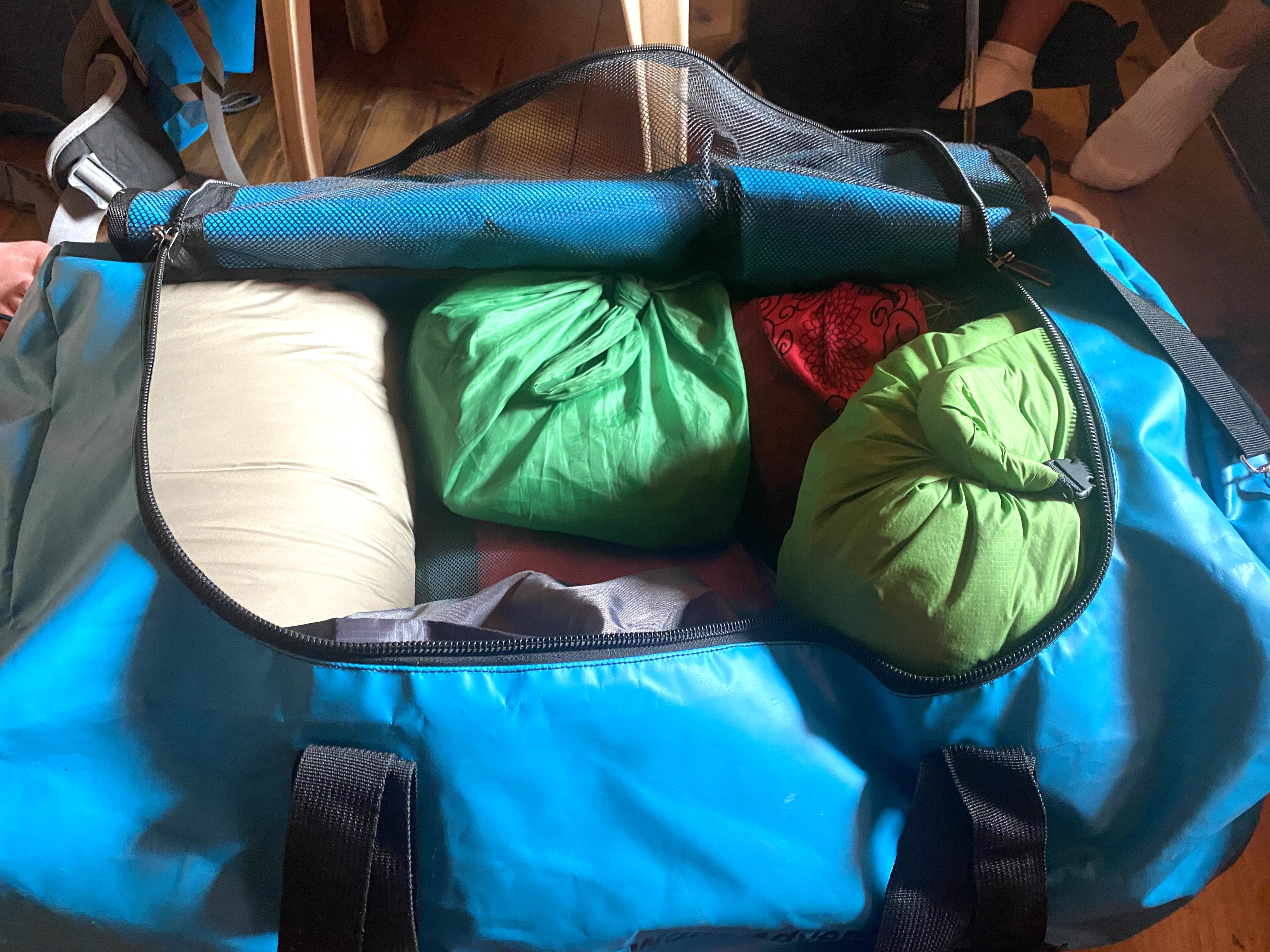
There is a weight limit of 10-11 kg per person for the items you entrust to the porters. In Nepal, porters will support you during your trek by carrying additional items in a large duffle bag, which you will receive during the briefing. However, this does not mean you should overpack. The duffle bag is intended for essential trekking items such as a sleeping bag, extra camp clothing, spare shoes, hygiene products, and perhaps a book.
You will share a duffle bag with another woman on the trip, and the usefulness of packing cubes or dry bags cannot be overstated. Dry bags compress clothes and other items effectively, making it easier to find your belongings in the shared duffle bag. We highly recommend acquiring a few dry bags and a compression sack for your sleeping bag. This will make a noticeable difference!
Out of respect for the porters' hard work, it's important to pack thoughtfully for the trek and minimize the number of items we bring. Packing as if you were carrying the load yourself helps in identifying what is truly necessary. The fewer non-essential items you have, the better.
Items not needed for your trek can be left at the Kathmandu Guest House accommodation. Our team will provide more details at the trip briefing.
On arrival, the visa procedure is generally very quick and simple. You can expect some queues during peak tourist season, but if you wish to skip those queues, you can also consider getting a visa from the Nepalese Diplomatic Embassy in Australia prior to your arrival.
Please ensure that your passport is valid for 6 months after your return date from Nepal or you may be refused boarding your international flight to Nepal and restricted from gaining an entry visa. It is also important to bring 2-3 passport-size photographs with a light background which are often used for permits, SIM cards, flights etc. Visas can be obtained only through payment of cash in the following currencies: Euro, Swiss Franc, Pound Sterling, US dollar, Australian dollar, Canadian dollar, Chinese RMB, Hong-kong dollar, Singapore dollar and Japanese Yen.
You must pay in cash, and costs are AUD 40 for 15 days, AUD 60 for 30 days, and AUD 150 for 3 months. Credit cards, Indian currency or Nepalese currency are not accepted for visa fee payments.
To ensure a smooth arrival, please withdraw cash prior to arrival at the airport. If you wish to extend your stay, you can extend your visa at the Department of Immigration in Kathmandu and Pokhara offices for total of 120 days. Before arrival, you must complete the online application form by visiting online.nepalimmigration.gov.np/tourist-visa
The average age of women attending our trips is 45 years. Ages can range from early 30's to mid 60s. All Women Want Adventure trips are for women over 18 years of age only.
Please note that tips should be given as a total sum for the trip, not on a per-day basis. Below is an approximate breakdown in both AUD and Nepalese Rupee for minimum tipping estimates, to simplify conversions and calculations for you. This trip includes up to 24 Nepalese staff, so tipping varies compared to our other Nepal Treks.
Tip: Please bring 4 envelopes with you. At the hotel in Kathmandu prior to your trek, you can prepare your tipping money and allocate it separately. This way, everything is sorted, and you don’t have to worry about it during the trek.
Total per Client: 13000R, approximately $150 AUD
Purpose Behind the Porters: Why so many?
Each aspect of our trek requires support for transport, ensuring a comfortable and well-equipped adventure. Here's how our dedicated porters contribute:
Tipping takes place on the last night at the Tea House before returning to Kathmandu. It's advisable to carry smaller denominations or set aside this amount while in Kathmandu, separate from your spending money.
Additional Expenditures:
The above does not include smaller tips you might wish to give during tea house visits, money for purchasing gifts, or buying bottled water, etc.
Overall Recommendation:
Consider bringing 20,000 - 25,000 Rupee for the entire trek. Any unspent amounts can be used for additional tipping or purchasing items for a porter, cold drinks at tea houses, entrees such as MoMos at tea houses, or shopping upon your return to Kathmandu.
Cash can be withdrawn from the ATM inside Kathmandu Guest House if needed. For smaller denominations, there are many money exchange centres around Thamel near the hotel.
Our trek is scheduled for the October season, coinciding with the end of the monsoon. Being at high altitude and flying into Phaphlu means we are literally in the sky! The weather here differs significantly from that in Kathmandu, often featuring cooler nights. The area can experience all four seasons in a single day. The morning might start with clear, beautiful skies, followed by rain an hour later, then sunshine, hail, and a cool evening. Please ensure you have your thermals and warm gear ready, along with shorts and T-shirts for the warmer days.
We recommend purchasing a small umbrella for hiking in case it rains. It's a convenient item and can easily be carried in the duffle bags.
Tip: The weather in Phaphlu differs from that in Kathmandu. You may want to check the weather forecast for Phaplu using this link.
Due to weather conditions, flights in or out of Phaplu may sometimes be delayed, and you might need to wait an extra day for the night available flight or take a long car ride back to Kathmandu. We strongly recommend that you allocate an extra 1-2 days at the end of your trip to accommodate such changes. There are plenty of activities to enjoy in Kathmandu and this will also give you a day to rest after your trip.

There is a hot shower at the tea house in Phaplu on the first and last night of the trek (usually a tap-style shower), where you have to use a bucket to pour more water over yourself. On the trek, the local team provides the group with "washing water" in the mornings and often in the evenings (weather permitting) - see the photo! Sometimes they will bring washing water in a bowl to your tent as you wake up in the morning. Usually, on one night when the weather is good, the team can set up a shower tent where you can wash yourself. Besides this, please bring some wet wipes with you (about 1-2 packets) and expect that you may go without a shower for a few nights, but still be able to wash your face.
In regards to toilets, the team actually carries a toilet seat (we know!). They set up a toilet tent and dig a hole. It's very civilized and easy. Please make sure you have toilet paper with you, even though the team will have plenty of spares, it is easier to have your own roll on you.
It's best to bring 2x rubbish bags with you for your wet wipe items or any sanitary products.
The Pikey Peak Nepal trek was everything I had hoped for, PLUS more!
I have come home feeling uplifted, energised and excited for the next adventure. This was my first WWA trip, and I was thoroughly impressed with the organisation and every part of the experience. The other women in the group were also a huge plus. I now know that you meet some very special people through WWA. Loved it and will be back for more adventures!
WOW, what an experience!
I recently returned from the Pikey Peak Everest Foothills trip in Nepal with WWA. WOW, what an experience! This was my 5th trip with WWA and the only reason I went to Nepal is because I knew it would be a professional, well-organised trip but with lots of fun and laughter too. It didn't disappoint! It was amazing, I met some truly awesome, adventurous women, saw magnificent mountains, beautiful forests, visited Buddhist temples and monasteries, ate delicious food and met so many wonderful Nepali people. It was a truly amazing experience, one that I wouldn't have done if it wasn't for WWA. Thanks to all involved, I will cherish it for a long time. Namaste.
© Copyright 2024 Women Want Adventure. All rights reserved.
Made with by SiteSuite in Sydney